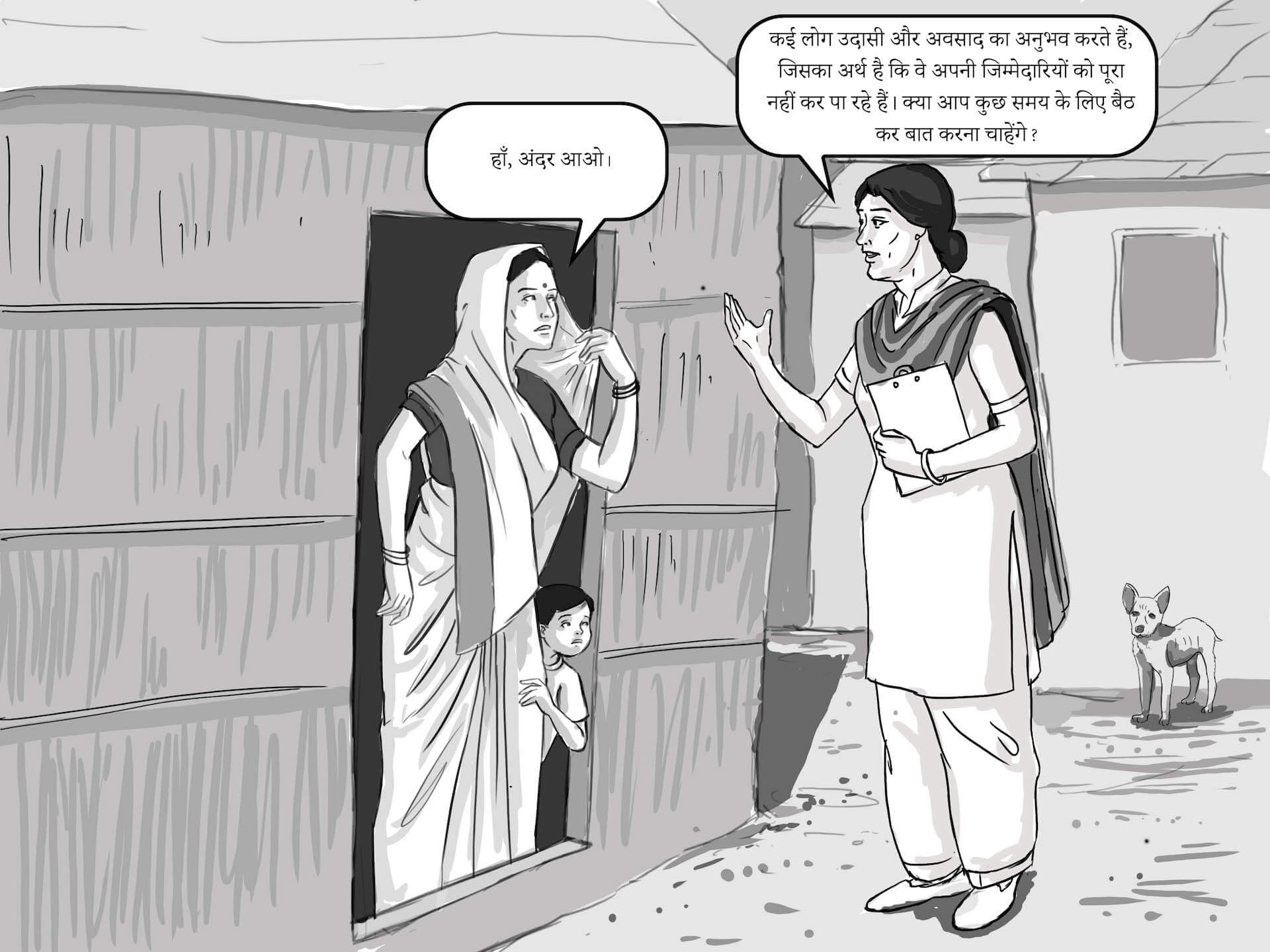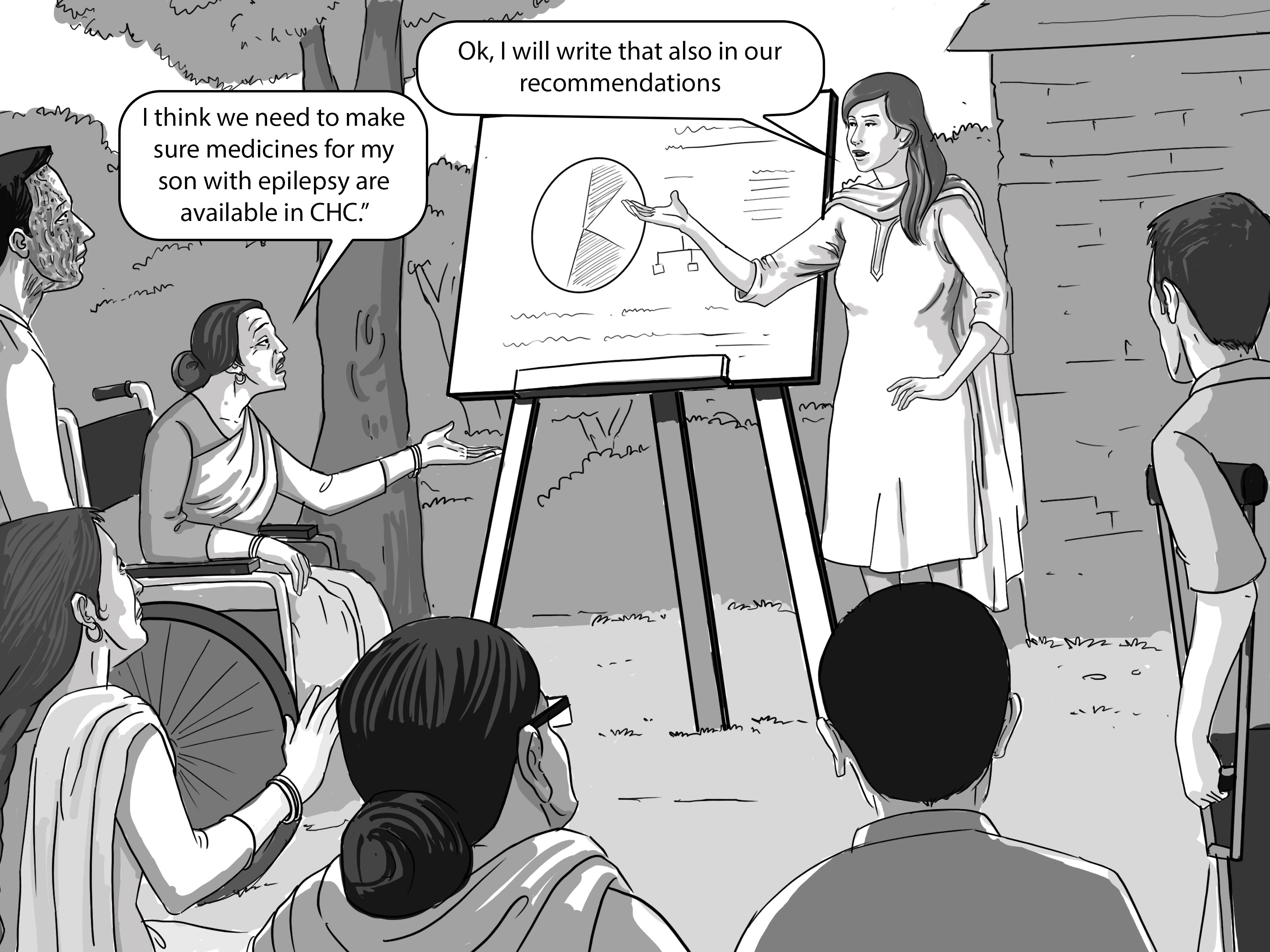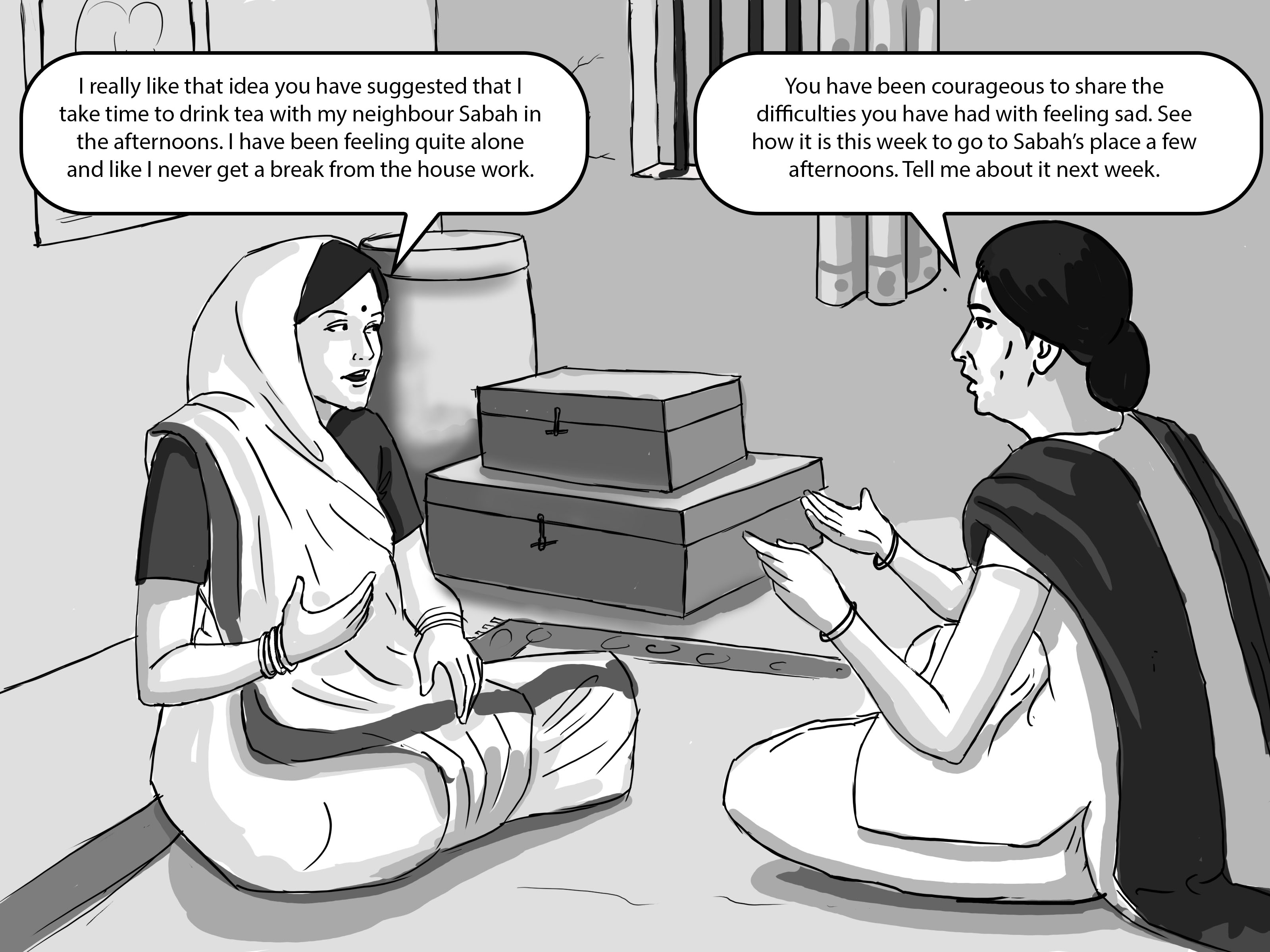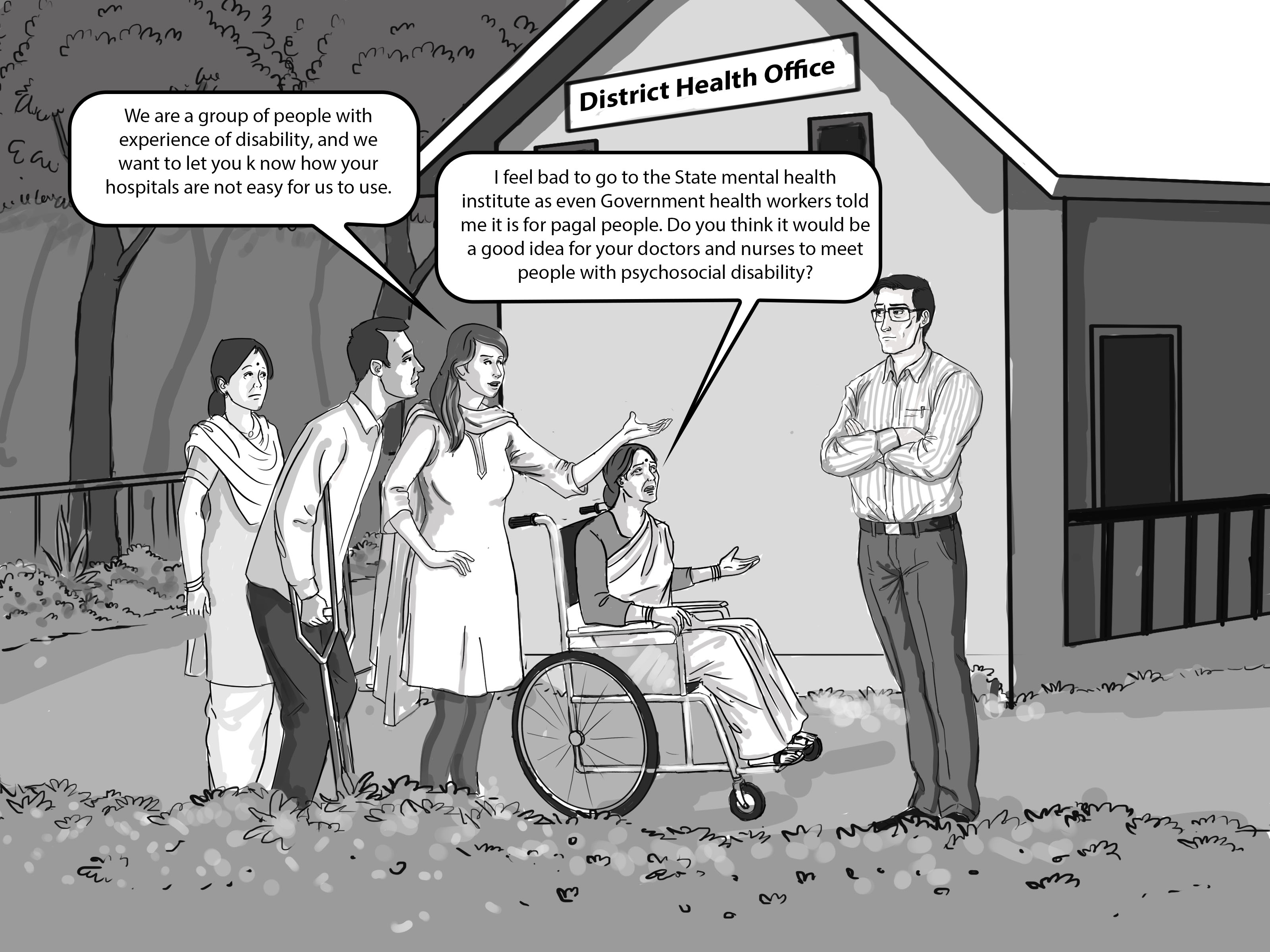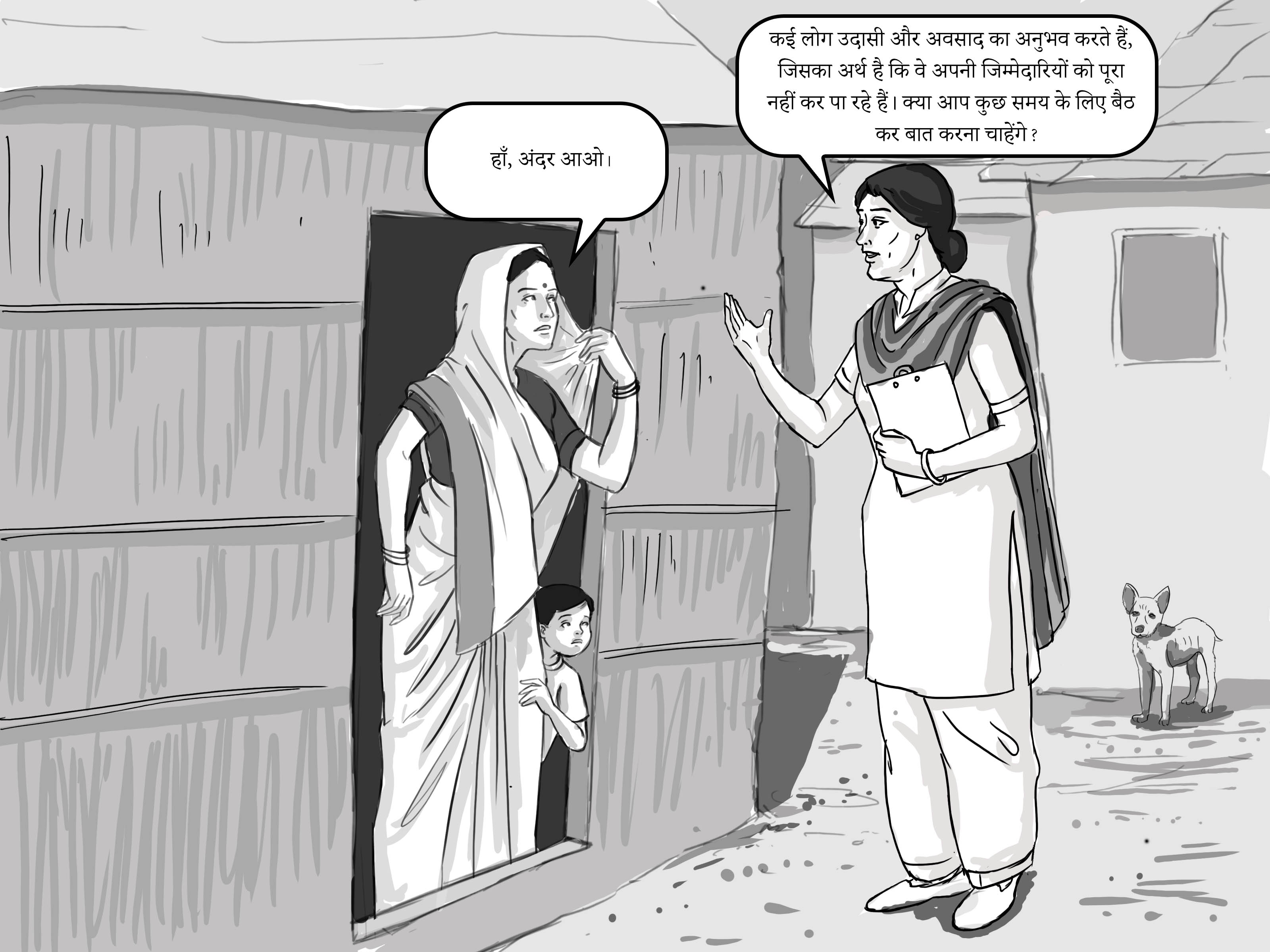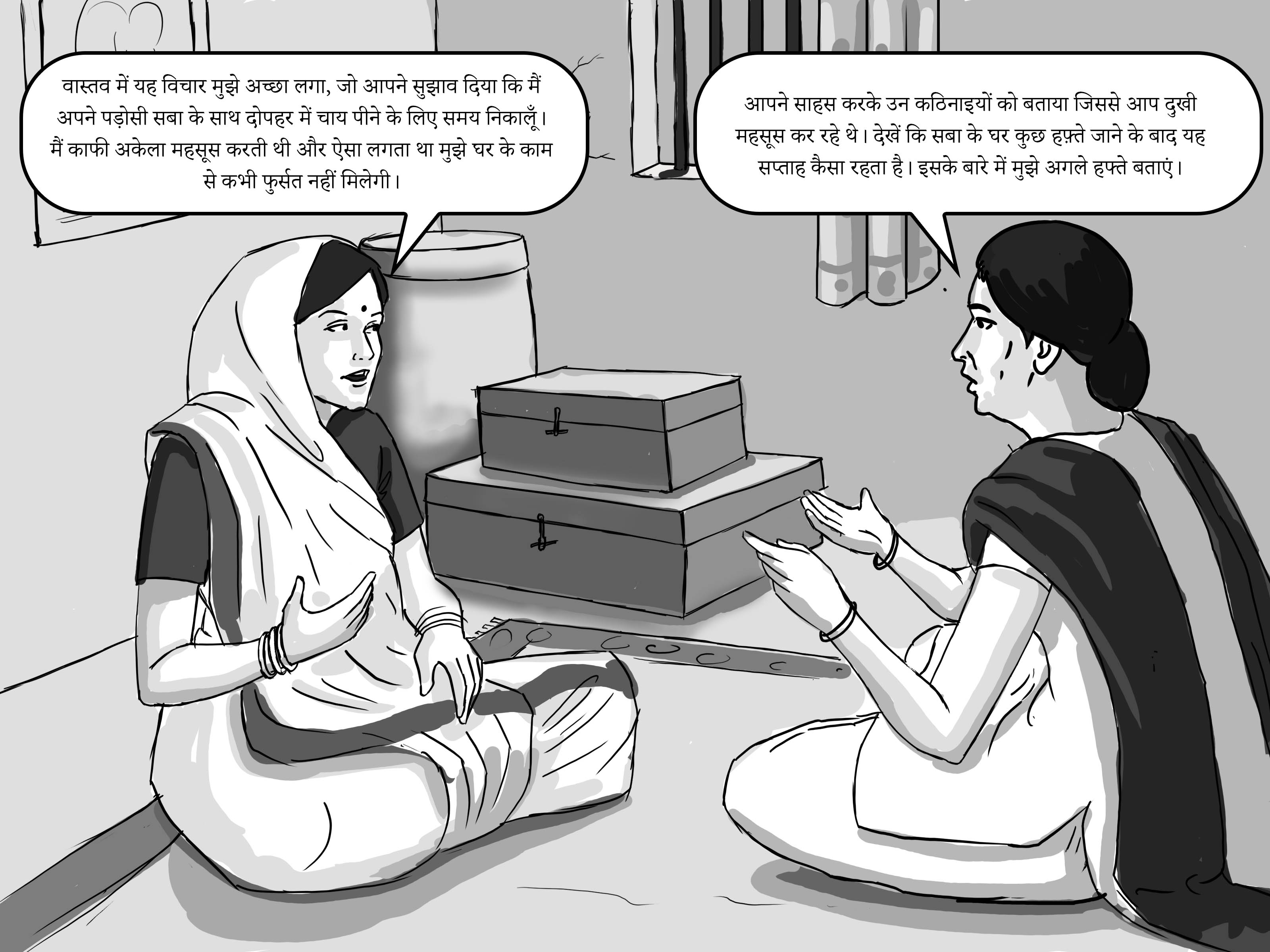We improve access to care
People with mental health problems in disadvantaged settings of Uttarakhand have limited access to mental health care services, with existing options being mostly biomedical, not addressing the root social issues that are causing mental distress, such as gender-based violence & poverty.
Our Burans team has worked with more than 3000 people with psychosocial disability since 2014, using care-plans and active listening and problem solving to tackle social issues that make people more vulnerable to mental distress. The one to one sessions are facilitated by community workers who micro-innovate, tailoring visits to the individual’s needs. We also actively engage with government service providers to increase the availability and relevance/quality of existing psychosocial support services and medication in harder to reach areas.
Over 3000 people with mental health problems have increased mental health literacy and know where to go for help when faced with mental distress. We have reached over 100,000 people in awareness drives about mental health and social issues such as gender-based violence, poverty reduction, sexual and reproductive health, education and rights.
We reach out to remote communities
Remote and rural communities are at greater risk of receiving mental health services, which focus primarily on biomedical care and hardly engages with traditional care, further increasing the treatment gap.
Burans work ranges from disadvantaged urban communities to remote and rural communities of Uttrakhand where our community workers build mental health awareness, identify people with mental health problems and connect people with available resources and services. We also work in closer collaboration with various traditional healers to strengthen community and public health systems.
Since 2019, we have reached over 200 villages and our advocacy has resulted in the beginning of a government-run mental health clinic in the rural district of Uttarakhand, that is Naugaon region of Uttarkashi district.
We boost resilience among young people
Young people in disadvantaged settings are at increased risk for mental health problems, like depression and anxiety, which make up their biggest cause of poor health. Psycho-social skills like identifying and naming emotions, planning and naming three things daily to be thankful for, can be learned, and can protect them from mental health problems.
Our Burans team has worked with young people to develop a programme to build resilience and mental health among young people using the platform of group meetings with 12 other young people, following a curriculum together for five months together. Nae Disha, or New Pathways is facilitated by a peer, uses games, role plays, discussion and a joint community activity and it is lots of fun.
Over 1500 young people have completed Nae Disha and several evaluations have showed it improves mental health, gender equal attitudes and resilience, and the results were shown to last 9 months at least! It is so successful it has been taken up by the Government to be rolled out in 8 National Institutes of disability and was profiled in a recent nationalGovernment of India conference on mental health.
We care for the carers
Caregivers in disadvantaged settings of Uttarakhand have limited skills and resources to support people with mental health problems in their own homes, and hence are themselves stressed and vulnerable to mental illnesses.
Our Burans team has worked with caregivers to develop a program to build skills and reduce stress using the platform of group meetings with other caregivers over 3 months. Nae Umeed, or New Hope is facilitated by Community Workers, and covers topics such as effective caregiving and self care.
Over 300 caregivers have increased skills to support people with mental health problems. We have worked with over 3000 pairs of people with mental health problems and their caregivers, to increase mental health literacy and resilience.
We collect evidence for what works
There are few research studies across low and middle income countries that examine what works to improve community mental health, and those that are carried out are often using a trial setting which does not reflect realities of daily life.
We set ourselves the challenge of using a research lens and attentive documentation of Burans work to improve community mental health, but these are implemented by local community workers and a local NGO, among the most disadvantaged communities, which provides a real-world setting for all our research. We are also committed to developing research questions, collecting and analysing data with ‘experts by experience’ and have documented how we co-produced a recovery tool set in North India.
We have completed a range of qualitative and quantitative studies that describe the mental health needs with a focus on equity, that examine the Burans interventions and mental outcomes (like a prospective two-year cohort study and a randomised control trial (paper under development)) as well as studies that examine ‘what works for who, where and how’ (a realist evaluation) and that examine health needs and assets.
